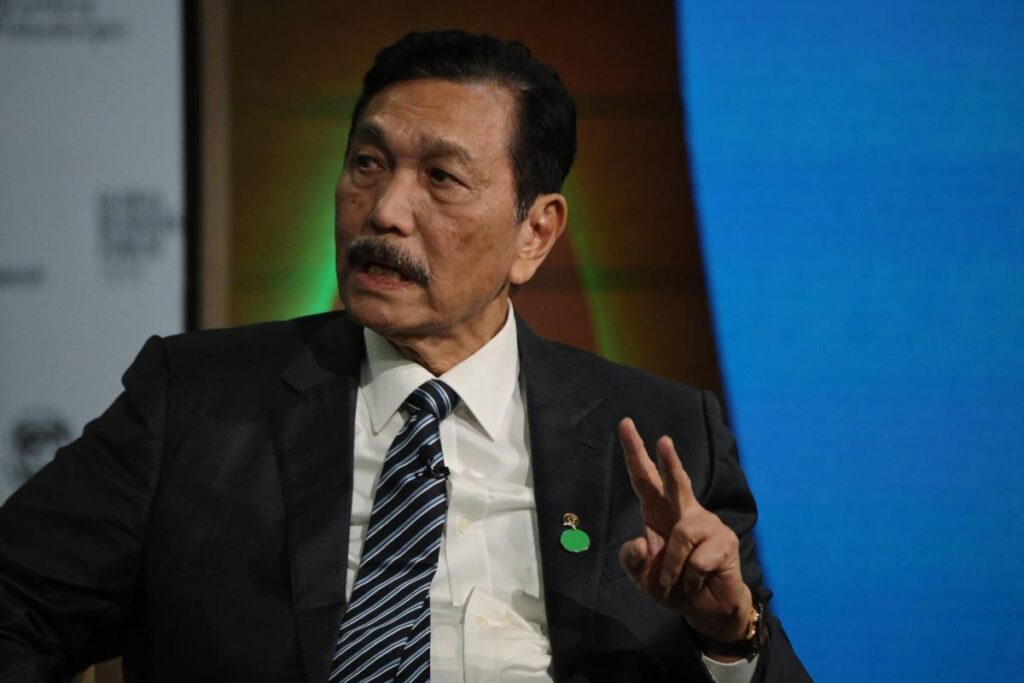In a significant move to anchor his administration’s economic strategy, Indonesia’s President Prabowo Subianto appointed Luhut Panjaitan as the chief of the newly established National Economic Council. Panjaitan, who previously served as the Coordinating Minister for Maritime Affairs and Investment under former President Joko Widodo, brings a wealth of experience to this role. His extensive background includes spearheading critical initiatives such as Indonesia’s mineral downstreaming efforts and managing key policy areas from tourism to investment. This transition reflects Prabowo’s strategy to utilize seasoned leaders who can navigate the complexities of governance and economic management in Indonesia.
During his appointment ceremony, Panjaitan acknowledged that despite his initial intentions to retire from front-line politics, he was willing to lend his expertise to the new government. He outlined his vision for the National Economic Council as a think tank populated with economic experts tasked with advising the government on achieving its growth targets. Notably, he pledged to focus on enhancing government operational efficiency through digitalization, a critical aspect of modern governance aimed at streamlining processes and improving service delivery to citizens and businesses alike.
Pan-jaitan’s past tenure as a coordinating minister has been characterized by a hands-on approach to problem-solving and investor relations. He has demonstrated a unique ability to negotiate across various governmental departments, helping to alleviate bureaucratic hurdles. His successful management during the COVID-19 pandemic and his role in securing a significant climate finance deal in 2022 underscore his capabilities in addressing multifaceted challenges. His experience is particularly pertinent as the new government seeks to enhance Indonesia’s economic resilience and attractiveness to foreign investment.
The structural changes accompanying this appointment include the dissolution of Panjaitan’s former ministry, which has traditionally overseen a broad spectrum of issues from mineral policies to tourism. The responsibilities of the dissolved ministry will be distributed among other institutions, with significant powers transferring to the newly strengthened Coordinating Ministry for Economic Affairs, led by Airlangga Hartarto. This internal restructuring signals a shift in the administration’s approach to economic governance, focusing on consolidating expertise and streamlining decision-making processes across various sectors.
Furthermore, the Ministry of Investment and Downstreaming has been mandated to extend its focus beyond minerals, embracing additional sectors such as fisheries and food processing. Minister Rosan Perkasa Roeslani has highlighted the government’s intentions to foster value-added processing, specifically targeting industries that can create substantial employment opportunities. This initiative aligns with Prabowo’s vision of an economy that prioritizes domestic production and job creation, reflecting a broader strategy to enhance national economic self-sufficiency in the face of global volatility.
Overall, the appointment of Luhut Panjaitan marks a strategic pivot for President Prabowo’s administration towards leveraging experienced leadership for economic advisory roles. With a focus on advancing digitalization, streamlining processes, and fostering investment through targeted sectoral strategies, the new government aims to drive Indonesia’s economic growth amidst complex local and international challenges. As this unfolding economic narrative continues, the impact of these appointments and structural reconfigurations will be closely monitored, particularly regarding their effectiveness in achieving the government’s ambitious growth targets.

